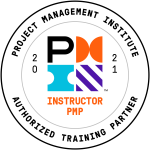The PMI Agile Certified Practitioner, also known as the PMI-ACP certification, is offered by the Project Management Institute and is a globally relevant credential that recognizes the expertise of a professional in Agile methodologies. PMI-ACP training includes several agile approaches like Scrum, Kanban, Lean, and Extreme Programming (XP), which makes it an essential and significant qualification for project management professionals worldwide.
It provides a balanced perspective on ‘Agile’ and ‘Waterfall’ project management methodologies that will encourage learners to view them not as two opposing systems, but as two complementary methods. Emphasis is placed on cultivating a flexible and adaptive mindset to blend traditional pragmatism with agile principles for the requirements of any given project. This course is part of the PMI-ACP Agile Project Management series.



